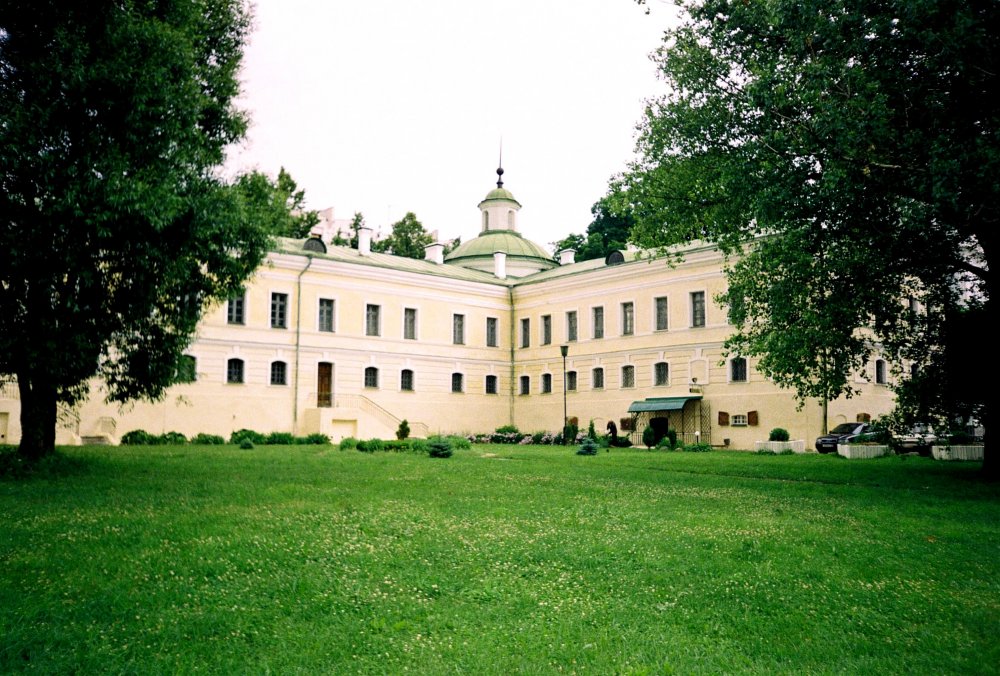Association of museums and protected areas of the city of Polotsk. The purpose of the existence of the museum-reserve is to protect the historical territory, preserve, study and restore monuments, as well as adapt them to museum expositions. The museum fund of the reserve is divided into collections: painting, graphics, sculpture, folk art, numismatics, archeology, ethnography, glass, porcelain, weapons, clothing, furniture, handwritten and early printed books, documents, printed publications, photo and sound materials, and more. The largest collections are collections of numismatics, archeology, photographic materials and printed publications.
-
Selected dates:
1968
Polotsk historical and archaeological reserve became a branch of the Museum of Local Lore.
1985
The reserve was given the status of an independent museum association.
1990
The Decree "On the Polotsk Historical and Cultural Reserve" was adopted and the Regulations "On the Polotsk Historical and Cultural Reserve of Republican Importance" were approved.
1997
The name of the historical and cultural museum-reserve was given.
2004
The name of the National Polotsk Historical and Cultural Museum-Reserve was given.
-
Structure:
Art Gallery;
Children's Museum;
Museum of Local Lore;
Museum of Belarusian book printing;
Museum-library of Simeon Polotsky;
Museum of Military Glory;
Museum of the History of Architecture of St. Sophia Cathedral;
Museum-apartment of the Hero of the Soviet Union Z. M. Tusnolobova-Marchenko;
Museum of Traditional Hand Weaving of Poozerye;
Natural and Ecological Museum;
Stationary exhibition "Walk along Nizhne-Pokrovskaya".
-
In addition to museums, the protected areas of Polotsk are included in the reserve:
Settlement and Settlement (VI-VIII centuries);
Zapolotye (1 thousand BC);
Upper Castle with St. Sophia Cathedral (XI-XVIII centuries);
Lower Castle with Ivan the Terrible's Rampart (XVI century);
Spaso-Preobrazhenskaya Church with frescoes and the foundations of the temple-tomb (XII century);
The complex of the former Belchitsky (Borisoglebsky) monastery (XII century);
"House of Peter I" (XVII century);
The complex of the former Jesuit Collegium with a retaining wall (XVIII century);
"Warm" Euphrosyne Church (XIX century);
Holy Cross Cathedral (XIX century);
Complex of the Epiphany Monastery with a cathedral and a fraternal school (XVIII century);
Lutheran church (early 20th century);
Red Bridge (XIX century).
-
Management of the museum-reserve:
Tamara Dzhumantayeva, director
Tatiana Yavich, Deputy Director for Research
Tatyana Orlova, Deputy Director for Construction and Restoration
Yulia Avchinnikova, Head of the Scientific and Restoration Department
Inna Pesina, Chief Curator, Department of Funds
Anastasia Nemchinskaya, head of the excursion department
Oksana Shafran, head of restoration workshops















-thumb.jpg?alt=media&token=5e9ae36a-a7ea-44cd-8765-81a253749759)
ruhi-i-mizhnarodny-pospeh_-vyniki-goda-%D1%9E-mastactve-%E2%80%94-reform.by-thumb.jpg?alt=media&token=4644da18-2e31-44ff-b733-10da53b0a833)

-thumb.jpg?alt=media&token=75e9a684-08cb-4915-8abf-b523c9c127ea)














